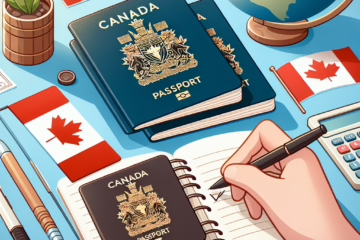Rights and Services for Refugees in Canada
Table of contents
Understanding Your Rights
All individuals in Canada are protected under the Canadian Charter of Rights and Freedoms, including refugee claimants. If you’re seeking refugee protection, you have certain rights and may be eligible for Canadian services while your claim is being processed.
Medical Examination for Refugee Claimants
After submitting your refugee claim, you’ll be instructed to undergo an immigration medical exam. This exam is crucial for your application and involves the collection of some personal information. The Canadian government covers the cost of this medical exam if you present your Acknowledgement of Claim and Notice to Return for Interview letter or your refugee protection claimant document.
Employment Opportunities
Refugee claimants who haven’t applied for a work permit alongside their refugee claim can still submit a separate work permit application. This application must include:
- A copy of your refugee protection claimant document.
- Proof of a completed immigration medical examination.
- Evidence that employment is necessary for basic needs like food, clothing, and shelter.
- Confirmation that family members in Canada, for whom you’re requesting permits, are also applying for refugee status.
Work permits for refugee claimants are issued without any fees while awaiting the decision on your refugee claim. To avoid any delays, ensure your current address is always updated with the authorities, which can be done online.
Access to Education
While waiting for your refugee claim decision, you can apply for a study permit to attend school. A prerequisite for this application is an acceptance letter from a designated learning institution. Your family members may also be eligible for study permits if they’re applying for refugee status alongside you. Note that minor children do not need a study permit for kindergarten, elementary, or secondary education.
Asylum Claims Process in Canada
Background on Safe Third Country Agreement (STCA) Changes
On March 24, 2023, Canada expanded the STCA with the United States to include the entire land border and internal waterways. This expansion means individuals who don’t meet specific exceptions and have crossed the border to claim asylum will be returned to the U.S.
Role of CBSA and RCMP
The Canada Border Services Agency (CBSA) and the Royal Canadian Mounted Police (RCMP) ensure the security of Canada’s borders, managing and intercepting irregular entries. The CBSA oversees entry at official ports, while the RCMP monitors security between ports of entry.
Making a Refugee Claim
Refugee claims can be made at a port of entry upon arrival in Canada or online if you’re already in the country. Eligibility for a refugee claim is determined by several factors, including past criminal activity, previous claims, or protection status in another country.
Difference Between Refugee Claimants and Resettled Refugees
Refugee claimants are individuals who seek asylum upon arrival in Canada, as governed by international treaties. In contrast, resettled refugees are screened and processed abroad before being granted permanent residency upon arrival in Canada.
After Making a Refugee Claim
Cross-Border Irregularities
Individuals are urged to enter Canada through designated ports of entry for safety and legal reasons. Those entering irregularly undergo security screening before their immigration examination.
Claim Eligibility and Hearing
Eligible claims are referred to the Immigration and Refugee Board of Canada for a hearing. Meanwhile, claimants may access certain social services, education, and apply for work permits after medical examination.
Receiving a Decision
A positive decision grants protected person status, making federally funded settlement services available. Negative decisions can be appealed, but all legal avenues must be exhausted before removal.
Understanding the STCA
The STCA mandates that refugee claimants seek protection in the first safe country they arrive in, with specific exceptions for family members, minors, and individuals with valid Canadian travel documents, among others.
This comprehensive overview highlights the process, rights, and services available to refugee claimants in Canada, emphasizing the importance of legal pathways and the support provided during the claim process.

FAQs
What rights do I have as a refugee claimant in Canada?
Is the immigration medical exam mandatory for refugee claimants?
Can I work in Canada while my refugee claim is being processed?
Are there any fees for applying for a work permit as a refugee claimant?
Can I study in Canada while waiting for my refugee claim to be processed?
What changes were made to the Safe Third Country Agreement (STCA) in 2023?
What is the role of CBSA and RCMP in the refugee claim process?
How is eligibility for making a refugee claim determined?
What happens after receiving a decision on a refugee claim?
Who is exempt from the STCA?
Can American citizens or stateless individuals residing in the U.S. claim asylum in Canada?
These FAQs provide a brief overview of the rights, services, and processes for refugee claimants in Canada, aiming to clarify common questions and concerns.
Pax Law can help you!
Our immigration lawyers and consultants are willing, ready, and able to assist you. Please visit our appointment booking page to make an appointment with one of our lawyers or consultants; alternatively, you can call our offices at +1-604-767-9529.
Discover more from Pax Law Corporation
Subscribe to get the latest posts sent to your email.



0 Comments